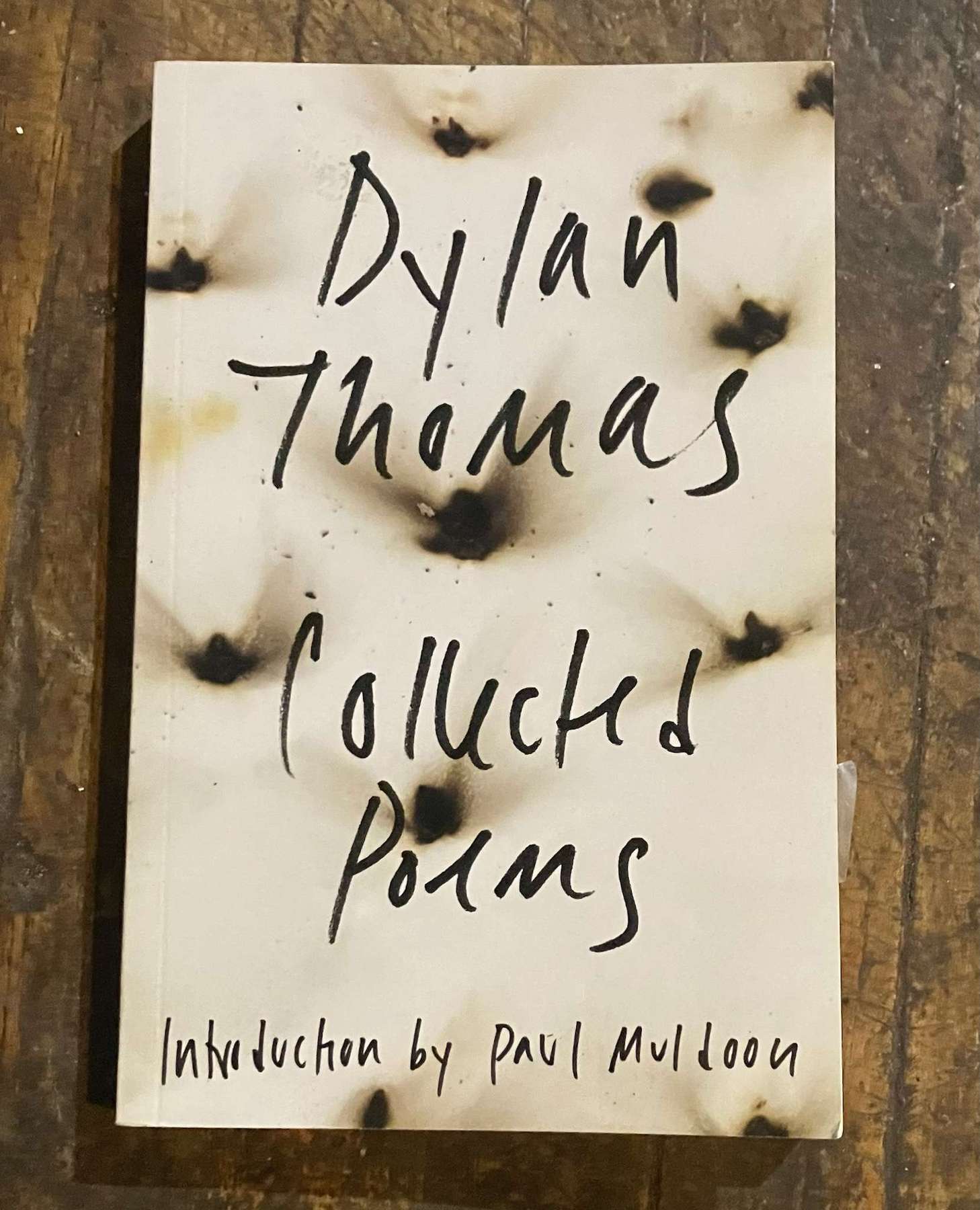
Bought this unread used paperback at a thrift store yesterday for a buck.
Dylan Thomas. The first real modern poet I read when I was still a teen. Over 60 years ago. And he was a revelation. I could see immediately that he was a serious poet, and at the same time, that I didn't come close to understanding him. But I also felt he was a mystery that I wanted to solve.
So what do I think about him today? I've made some progress in finding more meaning in his work. I've attempted to grasp him this way: Dylan Thomas is a poet of half-lines. A poet of original phrases: two, three, or at the most, four consecutive words. Of course in his most popular poem he's more direct and unambiguous. But this isn't where he's strongest.
These phrases often consist of a few words that have never previously been brought into contact. When they touch, they cause a sudden spark. This flash is the truth and beauty of poetry. A key to the vision of Dylan Thomas, a great master of his chosen art form.
Forget about understanding the entire theme of one of his celebrated poems. Most, almost all, of them, can't be, or needn't be, converted into rational prose. They're like a collection of titles to books that haven't been written, songs that haven't been sung, or films that haven't been produced. At best, take a few adjoining words, meditate on them, memorize them. And use them as often as suitable.
Dylan Thomas should have received the Nobel prize instead of it being passed, at much later date, to his more famous disciple, Bob Dylan.